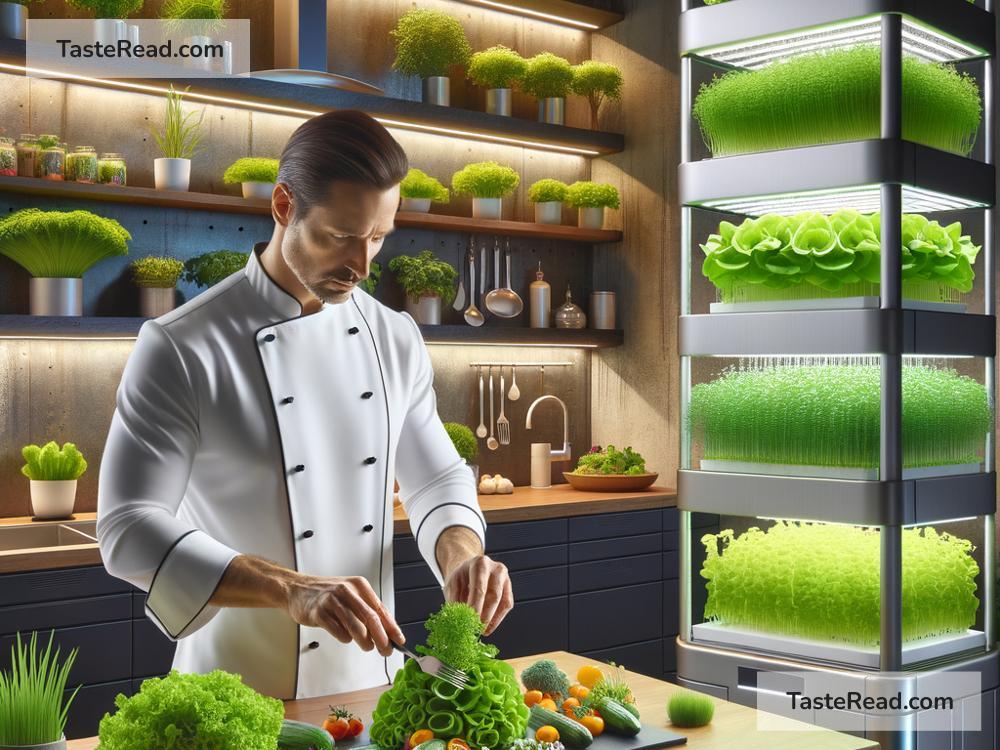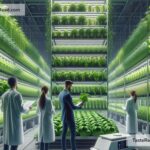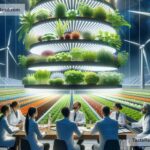The Future of Food and Sustainable Entrepreneurship: A Path to a Greener World
The way we grow, produce, and consume food is changing fast. Climate change, population growth, and limited natural resources challenge us to rethink how we feed the world. At the same time, people are becoming more aware of the need for sustainability—ways to live that don’t harm the planet for future generations. This growing concern has sparked innovation, especially among entrepreneurs who are developing new ways to make food systems more sustainable. Let’s explore how the future of food and sustainable entrepreneurship could shape a healthier world.
Why Food Systems Need to Change
Right now, much of the way we produce food harms the environment. For example, farming often leads to deforestation, soil degradation, and loss of biodiversity. Raising livestock such as cows also generates high levels of greenhouse gases, contributing to global warming. On top of that, food waste is a big problem—nearly one-third of all food produced gets thrown away. These issues are especially concerning as we try to feed the growing global population, which is expected to reach nearly 10 billion by 2050.
At the same time, unhealthy diets are contributing to rising rates of obesity and chronic diseases like diabetes. It’s clear we need to improve not just how we produce food, but also what we eat.
A New Era of Food Innovation
That’s where the future of food comes in. Entrepreneurs, scientists, and innovators are working on smarter ways to grow food, reduce waste, and make diets healthier. Here are some exciting developments in the world of food:
1. Plant-Based Alternatives and Lab-Grown Foods
In recent years, we’ve seen a boom in plant-based meat alternatives like Beyond Meat and Impossible Foods. These products mimic the taste and texture of traditional meat but are made from plants, which require fewer resources to produce. Plant-based diets are better for the environment because they use less land, water, and energy.
Another fascinating area of innovation is lab-grown meat, also called cultured or cell-based meat. Scientists grow animal cells in labs to produce real meat without raising or slaughtering livestock. While still expensive and in early stages, lab-grown meat has the potential to reduce greenhouse gas emissions and use fewer natural resources.
2. Vertical Farms and Precision Agriculture
Traditional farming uses a lot of land and is vulnerable to changing weather patterns. In response, vertical farming is gaining popularity. These farms grow crops indoors in stacked layers, often using less water and fewer pesticides. Some vertical farms even use LED lights to optimize plant growth. They can grow food year-round in urban areas, bringing fresh produce closer to cities.
Precision agriculture is another game-changer. Farmers use technologies like drones, sensors, and artificial intelligence to monitor their crops and soil. This allows them to use fertilizers and water more efficiently, reducing waste and protecting the environment.
3. Edible Insects and Alternative Proteins
While it might seem unusual to eat insects, many cultures already enjoy them as part of their diets. Insects like crickets and mealworms are packed with protein, require far fewer resources to raise than livestock, and have a much lower environmental impact. As sustainability becomes a priority, edible insects could become more mainstream in the future.
There are also other alternative proteins emerging, such as algae and fungi-based foods. These options could help diversify diets while reducing reliance on traditional farming methods.
Sustainable Entrepreneurship: Building a Better Food System
Sustainable entrepreneurship plays a key role in shaping the future of food. Entrepreneurs who prioritize sustainability are creating businesses that both help the planet and meet the demands of conscious consumers. Some of these businesses focus on reducing waste by transforming leftover food into new products. For example, companies are turning surplus bread into beer or leftover fruit into nutritious snacks.
Other businesses are tackling packaging waste by creating compostable or edible packaging. There’s even a growing movement to eliminate single-use plastics from the food industry entirely.
Sustainable entrepreneurs also invest in educating people about food choices. Many brands advocate for “farm-to-table” practices, promoting fresher, locally sourced food. By reconnecting consumers with the origins of their food, these initiatives help drive change toward more mindful eating.
Challenges and Opportunities
While the future of food and sustainable entrepreneurship looks promising, there are challenges. For example, new technologies like lab-grown meat need to become more affordable to reach more people. Insect-based foods must overcome cultural barriers before they can gain wider acceptance. Farmers who want to transition to sustainable methods often face financial hurdles.
Despite these obstacles, there are many opportunities. More people than ever want to support businesses that align with their values. Governments are beginning to offer incentives and funding for sustainable practices. Technology continues to advance, making it easier and cheaper to adopt greener solutions.
The Role Everyone Can Play
The journey to a sustainable food system isn’t just up to entrepreneurs—it’s something everyone can contribute to. By choosing plant-based meals, buying locally, or supporting brands that prioritize sustainability, you help drive the movement forward. Reducing food waste at home and recycling packaging also make a difference.
Final Thoughts
The future of food is full of possibilities. With a focus on innovation and sustainability, entrepreneurs are creating solutions to some of the biggest challenges in food production and consumption. While there’s still work to be done, these efforts pave the way for a greener, healthier world.
As individuals, we have the power to support sustainable choices every day. Together, we can shape a future where food systems nourish both people and the planet. The journey starts now—one bite at a time.


